|
by mh musings With its final five episodes, the visual bonanza that we experienced through bluTV’s Yeşilçam finally comes to an end. Semih Ates, prone to getting himself into complicated escapades that have a proclivity to be interconnected with unsavory characters, emerges as a hero once again. At a low point in his journey, when he expresses how tired he is from being the one who is abandoned, his mother tells him, “your good heart helps to open new doors” because Semih, for all his bravado and daring, is a well- intentioned man who only wants to bring good cinema to the world. As he navigates the intrigue of Yesilcam during a politically turbulent time, we see how one good gentleman can move the world for the better on the strength of his convictions. We understand the true meaning of love, and how life will hand us losses when we least expect it. We learn how to stand resolutely against the onslaught and how that serves as a beacon for others to follow in its wake. Yeşilçam is so much more than just the trials and tribulations of a struggling producer. The social commentary stated and or interpreted through the characters are insightful and leaves us with a sense of respect for the players in an industry that learnt to thrive amidst a tidal wave of challenges. At the end of this journey, these are my top notes from the last quarter of this marvelous series. Courage For Freedom We have known since the beginning that Semih, Hakan and Mine share a special bond as they grew up on the streets of Yesilcam together, overcoming many of their trials by leaning on each other. Even though Semih and Mine’s marriage collapsed because their individual ambitions were at a cross-roads with each other, their affection and love for the other could not be hidden. They both chose a divergent path, and Semih eventually marries Tulin who gave Semih the love and attention he sought from a woman. Their happy marriage hits a roadblock when Semih is compelled to be by Mine’s side the night Tulin gives birth to their child, Mehmet Ali. This event creates an irreversible fracture in the Ates marriage, as they scatter from each other emotionally. When Tulin discovers Semih’s extra-marital affair with Gazel, she is unable to forgive him. She realizes that both of them have lost the will to remain committed to this marriage and takes the resolute step towards an amicable divorce. She leaves the Buyuk Ates film company and takes her movie to the production house of Reha Esmer, Semih’s arch nemesis. Much of Semih’s team crosses over with her, leaving Semih alone once again. Much as it is painful to decouple, Tulin is given a dignified courage to reach for her freedom, and not subjugate herself to a lifetime of unhappiness by being locked in a distrustful marriage, either for the sake of their son or for financial dependence. Ironically, it is Semih’s mother who eventually secures Tulin’s financial future by leaving her with a worthy inheritance. On the other hand, Gazel who is unhealthily afraid of her husband Ekrem, suffers from a panic attack when she feels Ekrem might be nearing the truth regarding her affair with Semih. She succumbs to his machinations and allows herself to be committed to a mental institution, and eventually onto a voyage back to England. In an attempt to still assert her independence, she helps Semih with some crucial information that lets him get his hands on incriminating evidence against Ekrem’s involvement in an impending coup. Mine continues to walk a dangerous fine line as the spy within arms dealer Niyazi’s inner sanctum. She establishes herself as his mistress to try and glean information about the potential coup and is eventually able to find some important clues. In the meanwhile, she is threatened by someone who claims to have been a witness to her past crime and she begins to struggle to find a path out of the labyrinth of intrigue. Semih and Hakan band together to protect her and eventually the trio triumphs over the conspirators. On the surface it may seem like a fantastic set of events that are in motion for dramatic effect but this strain of why these individuals were doing what they were doing is thought-provoking. Ultimately, the ability to have freedom of choice is what drives them. Mine wants to have the freedom to choose her roles and life partner, Semih wants the freedom to tell the kinds of stories he wishes to tell, Tulin wants the freedom to set the course of her own life, Gazel wants the freedom to enjoy the luxuries Ekrem affords her and Hakan wants the freedom to just be Hakan. Love Rises Above All As Hakan’s marriage with Suzanne crumbles in time with Semih’s with Tulin, Mine, Semih and Hakan find their way back to each other, all now aware of the truth that broke them apart five years ago. Hakan says, “You need to be with people who will accept you with your mistakes” and it is obvious that for all their individual and collective transgressions, the trio’s unbreakable bond makes them forgiving and supportive towards each other no matter what life throws at them. This notion of being with a tribe who will accept you regardless of your flaws also provides understanding for all the broken relationships Semih leaves in his wake, including his marriage with Tulin. Apart from a mother and child relationship, we do not hear of unconditional love. In Yesilcam, Semih and Belkis hanim hardly shared such a relationship for much of his life. Perhaps out of necessity or out of ambition, Belkis chose to abandon Semih in favor of pursuing her career as the highly sought madame of Yesilcam, cementing the idea within him that he was not lovable as he was. In his youth, Mine does the same when she refuses to play second fiddle to his career aspirations and leaves to pursue her ambitions as an actress. Tulin seems to embrace him with all his troubles but her insecurity regarding Semih’s feelings for Mine becomes suicidal for their relationship. With each failure one learns and becomes stronger. Everyone eventually accepts the other for who they are and Tulin allows their son Mehmet Ali to remain the link between them even if they cannot remain married. After all the ebbs and flows, betrayals and choices, Semih finds his way back to Mine and their love story hinges on the final words said in Semih’s famous film ‘Swallow Season’. “If I wasn’t in love with you, my love, then I couldn’t even grow up, my love. Falling in love with you was in my destiny. Love means to be in love madly but not having each other. It means to be defeated, to be upset and to suffer.” They suffered the pain of separation and both of them grew to be the people they needed to be so that they would never let each other go again. Tulin also grows as a person and even though she had loved these lines in a movie, in real life she could not accept the suffering as a part of being in love. Perhaps her efforts fell short because she knew in her heart that Semih could never love her the way he had loved Mine or the way Tulin wanted to be loved. With her growth came her ability to accept the reality, forgive Semih for his transgressions, find a bright path for her own success that did not hinge on a man. Her love for herself also illustrates a worthy journey. Father & Son Even though we are not shown much of the relationship between Semih and his son Mehmet Ali, their love for each other is evident throughout the few interactions. Over time, we have seen how much of his father and Uncle Kosta influenced the life and moral values Semih chose to live by. Semih understands the importance of his role in Mehmet Ali’s life and even after his divorce, he maintains a parental role who shapes his son’s perspectives. Mehmet Ali didn’t have Semih as a regular part of his life. Some of it is due to the distance Tulin put in the home from her communication issues with Semih, making it an unwelcome space where Semih would want to spend time. Adding her mother to the mix, Tulin (in)advertently made Semih feel like an outsider and that is the vision Mehmet Ali formed as well, believing his father belonged outside the home chasing his movies. With the divorce, it almost becomes easier to build a healthier relationship with his son because the mother is no longer constantly resentful and angry. In the last scene of the father and son, Semih begins to sound like his beloved Uncle Kosta who instilled the love of stories and cinema in Semih. It became Semih’s moral compass for his life, and maybe it will be for Mehmet Ali too.  Fantasy Versus Reality Much of the backdrop in Season 1 is rooted in real events of the times. The Istanbul Pogrom of 1955, a politically charged event that set economic and structural changes in motion, was foundational to how the story evolves in Season 1. However, Semih’s heroic persecution of a sadist such as Izzet is a fantasy element that allows to show a common man become the savior for his nation. Similarly, in Season 2, the return of Ekrem, part of the Ottoman elite who were banished from Turkey at the end of the Ottoman Empire in the early 1900s, is a nod to the reality of the time as some of the elites were coming back in and beginning to re-integrate into the political fabric of the country. However, there is no historical account of the exact coup attempt shown in the story, which again becomes a foil for Semih to emerge a hero amidst a multi-pronged political intrigue. In the end, it is a little difficult to be crisp about who is gunning for whom, who is lining whose pockets and why. Season 1 seems to have more clarity around these complex plot lines. Unfinished threads A number of themes from season 1 either abruptly ends or trails off in an unexpected diminutive whisper in this season. Such as Semih’s partnership with Yilmaz Guney, who in reality went on to become a very important player in Yesilcam by 1969, could have been expanded to show the kinds of stories gaining traction in the late 60s but Guney doesn’t appear at all nor are there any allusions to what happened to his movie with Semih, or his career. After his brilliant downfall at the end of season 1, a man accused of murder and out of favor with his party, Izzet makes a brief and unremarkable appearance in this season, back as an administrative cog in the wheel of bureaucracy. Surprisingly, his hatred for Semih is not channeled in a fulfilling way and his character loses much of its luster established in Season 1, both in how it’s written and in Ozgur Cevik’s layered performance. After a long build-up of Semih’s complicated relationship with Belkis, the resolution of their relationship and her quiet departure left a lot unsaid. Perhaps it underscores how some stories are not meant to have closure. Apart from a few of these unexpected turns, Season 2 is a delightful watch that satisfactorily concludes a well-crafted story, capturing many moving pieces during a tumultuous time in Turkey’s recent history. The performances and set design are extraordinary, and the show should do well in international sales, now being distributed by Calinos Entertainment. It is a seminal piece of artistry that showcases the past and the present of the Turkish film industry in memorable ways. Kudos to the entire team of writers, cast & crew, for this excellent production. For his fans, Cagatay as Semih is a multi-dimensional and studied performance. Cagatay adeptly plays an energetic man who stays in step with the times and, with a casual relationship with the drug culture of the 60s, he exhibits an exaggerated bravado as he navigates dangerous times. With his comic timing, effusive mannerisms, acceptance of life’s curveballs, the inner strength and astuteness that lets him see the bigger picture, and more, Cagatay becomes Semih. His real life love for cinema translates seamlessly into Semih, as he imparts his final words of wisdom to his character’s son, “Cinema is your best friend, son. It can be your shelter when there is war, it can be your home, your bedroom. It can be the plate on your dinner table.” Cinema is timeless, as is Yeşilçam. Author's note: Very few Turkish productions have captivated me as Yesilcam did. It was an honor, and a compulsion, to write about it.
The script, performance and the depth of the story are par excellence. It inspired me to learn deeply about the political history of the country, which helps to better understand the modern day shifts in the political and social arena. By getting an opportunity to interview the brilliant writers, Levent Cantek and Volkan Sumbul, my appreciation for the production has been ten-fold. This is not a happenstance work moulded to fit public perception or to appease ratings. It is an introspective piece of work from some of the best artistes in contemporary Turkey, who take pride in showcasing their work and their country. I will hope that TV networks far and wide appreciate this show for what it is and bring it into the homes of their audiences. Works that are politically aware and entertaining at the same time must become a staple in TV selections. ________________________________________ Article (c) CUNA & @entrespire/ twitter Please follow CUNA at: www.facebook.com/cagataynorthamerica www.instragram.com/cagataynorth www.twitter.com/cagataynorth This is the only page officially affiliated with North America TEN All video clips and photos belong to their respective owners. No copyright infringement is intended. Please ask for permission before reprints. #Yesilcam #CagatayUlusoy #LeventCantek #BluTV #BoraAkkas #VolkanSumbul #CaganIrmak #SemihAtes #MineCansu #TulinSaygi #AfraSaracoglu #SelinSekerci #EpisodeReview #TurkishDrama #Season2 #JusticeParty #BloodySundayIstanbul
4 Comments
by mh musings Yesilcam is back with Season 2, with the characters and scenarios evolved to fit with the five year jump in their lives and in the industry. Semih Ates is still the spitfire he always has been, the cat with nine lives who keeps getting into one escapade or another. He has Turgut by his side as an in-house writer for his production company, Buyuk Ates Film. Mine has been making a living away from Istanbul but gets called back by the state intelligentsia to fill her cover story as the manager for the night club Mona Lisa, now owned by Vebhi. Tulin, married to Semih, has left the world of acting to be mother to their son Mehmet Ali but navigates a growing distance with Semih due to a multitude of reasons. Hakan left his promiscuous days while turning his back on Mine and married Reha’s only daughter Sezen. This reshuffling of relationships has led to new power dynamics in Yesilcam. Semih, who is now independently successful, is a formidable rival for Reha. Without Vebhi’s support in the film business, Reha continues to look for growth opportunities to dominate Semih, who has taken over Reha’s theaters in a recent deal. With the introduction of Ekrem Hazinedaroglu, a pasha from the Ottoman times who has recently moved back to Turkey, we have a new fulcrum for power plays. He wishes to invest in building a studio in Yesilcam and provide a gateway into film distribution in Middle East, N. Africa and Europe. Reha has kept his dealings with him under wraps but Semih gets whiff of it and understands that the future of Yesilcam will hinge on such an infrastructure. He outmaneuvers Reha and becomes Ekrem’s business partner, at the cost of attaching himself to the intelligentsia once again. Against this backbone of how Yesilcam is revolving around Semih’s aspirations, Yesilcam continues to serve rich themes in the cultural history of the film industry, social shifts in the times, business machinations, and how the individual relationships get shaped against these moving tides. It is interesting that BluTV released five episodes at once because the way the narrative unfolds with flashbacks interspersed with current happenings, it was necessary to see this block of episodes together and build the anticipation for what lies ahead. The top notes that stood out to me from these episodes are discussed below. Same Song, Different Tune At its core, not much has changed in Yesilcam. Survival instincts define the strength and direction of alliances, and loyalty is fickle. In a competitive space where politics provides an ever growing guardrail for how the industry can grow, Yesilcam adapts to the times with the same entrepreneurial vigor. Within his rivalry with Reha, Semih’s insatiable need to thrive in this industry as an important player in the stories that are told is still there. He has people who care for him, he has healed his distance with his mother, and while the players have shuffled, there remains holes in his life he tries to fulfill in new ways. Tulin has grown distant from him over the years, with an irreversible resentment towards Semih rooted in her firm belief that he is unable to make her his top priority, especially over Mine. They share a son but it is evident that Semih is almost an accidental observer in Mehmet Ali’s upbringing. So much silence and lies fill their increasing distance that both lack the language to traverse the chasm. On advice from Belkis, Tulin attempts to become more of a part of Semih’s daily life by expressing an interest in taking on a movie project. Semih also embraces the opportunity and enables her to become a producer, ignoring the brewing office politics between Turgut and an aspiring writer, Yusuf. However, it maybe too little too late. The bond among Semih, Mine and Hakan remains impenetrable even though the three have scattered in different directions. To protect him, Semih and Mine hide a big secret from Hakan, which has directly affected the family life Semih is able to build. Being spurned by Tulin for so long, we see Semih indulging in some of the sweeping changes in the urban pop culture, brought to life by the hippie winds blowing through Istanbul. Drugs, promiscuous women, drunken orgies, dancing to the swinging 60s have become Semih’s outlets while his homelife remains stilted. Hakan has ingratiated himself with the Esmer family, making his marriage to Sezen the keystone for his life’s growth. The early vigor of his marriage has fallen prey to his subservience to Reha and Sezen’s slide back into her addictions. Oblivious to the effects his choices have had on Semih and Mine, he continues on his self-righteous path while he blames everybody but himself. Gazelle, the sultry lady with the footloose behavior, hides her true identity as Ekrem’s wife when she starts an affair with Semih. As always, the impulsive opportunist in Semih has painted himself into a corner when he discovers her connection with his new business partner and he realizes that the daring, nymphomaniac Gazelle has no intention of just letting him loose. The more dangerous the game, the more excited she is. How will this play out for Semih just as he is trying to find common ground with Tulin? On another front, Rifki has passed on and is now replaced by a similarly wily character called Naki. Semih, who has proved his patriotic flair throughout his escapades in Season 1, aligns himself with the state again through Naki. He promises the opportunity to shape the industry narrative through wider international exposure if the state will fund his partnership with Ekrem. And, unknowingly, both Semih and Mine’s survival are now tied to Naki, who has also recruited Mine to gather intelligence on an arms dealer called Niyazi Demiral. As the cauldron full of intrigue brews in Yesilcam, we are left to wonder if Semih will be able to find his way out of this mess and, if so, will he be able to build a happy ever after for himself? Will he be able to remember who he is and be true to himself and what he loves? Will Tulin remember all the reasons she had loved Semih and forgive his transgressions or will she continue to be influenced by her mother’s indignation and lies? Will Semih find his comfort with Mine who understands him with all his flaws or will being there for his son mean something to him? These, and many more loose threads, await resolution in upcoming episodes. Shifts In Political Winds Almost every nation goes through iterations in their political systems and values. Turkey has been particularly interesting because of her Islamic roots through the long reigning Ottoman empire and the shifts away from those ideologies through Kemalist policies fostered by the Republican People’s Party (CHP) after the country became a Republic in 1923. When the economy stagnated towards the end of the WWII, the one party rule became an untenable solution to meeting the people’s problems and Turkey entered its multi-party period in the 1950s, when the Democrat Party gathered the rural electorate and won the elections against the CHP after it had ruled for 27 years. The reality is that no one party can remain ideologically rigid and meet the people’s needs as they shift with changing times. Much depends on how different stakeholders are appeased and the strategies employed by the governing body in controlling or empowering the populace. The DP ran into trouble within a decade, which led to the 1960 coup d'etat. In my reviews for Season 1, I have talked about the political background of the 50s – 60s as it led into the 1964 elections, and how the Democrat Party reinvented itself as the Justice Party and still won the majority votes. In the 5 ensuing years, the economy continued to struggle, leading to greater political divides between the left and the right, as well as a mounting anti-American sentiment. Bloody Sunday of February 16, 1969, is a violent reminder of rising intolerance between the left and the right. There were further splintering in political ideologies and instead of 4 political parties and independents in 1964, there were 8 parties and independents contending the 1969 elections. This increasing fragmentation is indicative of the upcoming chaos and a precursor to how the multi-party system would fall prey to another coup in 1971. This period in the 70s is outside the scope of this show but I love the clever story details Mr. Cantek and Mr. Sumbul inserted to give the attentive viewer the intuition for the driving forces behind the contemporary social changes of the late 60s. In this predicament, we begin to see further changes in how the Ottoman elites begin to seep back into society. A group that was considered the piranha at the end of WWI, had now added layers of genteel veneers of having connections with the English and using those covers to move back to Turkey. Changing economic needs create very short memories and people will clutch at any straw that will provide them a way out. Neither Reha nor Semih had pangs of conscience doing business with an Ottoman elite because he had the funds and the vision to move the industry forward. Since their exile in 1924, male members of the Ottoman family were only allowed back after 1973. As such, the return of Ekrem Hazinedaroglu (a pasha during the Ottoman era) seems surreptitious and perhaps a fictional ploy to show how some started to exert influence earlier. He is also shown as an example of contradictions that exist in the Ottoman way of life, which is supposed to be a center for Islamic principles. As an example, Ekrem is still tied to anti-Jewish sentiments, which is a centuries old sub-thread in the Middle Eastern narrative between Muslims and the Jews, and yet his elitist behaviors transcend other Islamic teachings or political ideologies rooted in Islam. His scantily clad, adulterous wife roams as a symbol of every vice that has blown in from the West, and he seems to be either an oblivious spouse or an enabler of her idiosyncrasies. The Hippie Culture From the 1950s to the 1970s, a Western wanderlust initiating in the United States and Europe gave rise to a group of counter-cultural pilgrims making their way through an alternative Silk Road in search of spiritual enlightenment, accentuated with drugs. The Hippie Trail, as it came to be known, wound through Turkey, Iran, Afghanistan, Pakistan, India and Nepal. We see hints of this in Season 2, with how Gazel runs the parties at her Guzel Ev (Beautiful House) and how Erol has reimagined his pub in Yesilcam to be a hangout for these transient visitors. Through Semih’s world, we see artistes indulging in coke, marijuana, and other psychedelics, as they pursue whatever they deem to be happiness or practice carpe diem. There is a growing moral fluidity that is in step with the political fluidity of the times. Almost as though without a single, consistent source of voice setting the tone for social morality, much was left up to the imagination as it morphed with borrowed sub-cultures from the West or as it conflicted with the social mores of the Anatolian heartlands. At Gazelle’s house, we hear the crooning of what Zeki calls Anatolian Pop and he says ‘they turned Mahsuni’s folks song into rock and roll’. Asik Mahsuni Serif is a famous Turkish folk musician. The guests at Gazelle’s house are also all dressed in very hippie fashions, many of them stoned and in search of a transcended experience. At a later time, we see a similar scene in Erol’s pub, where he has a jukebox, his earlier sharp attire transformed into a patterned skullcap wearing hipster who offers refuge to these artistes and individuals searching for enlightenment. The hippie winds brought changes to the urban social structures, and with that came changes for Yesilcam. All of these are so intelligently captured against the backdrop of Semih’s story as he continues to weave in and out of trouble and new adventures. As I have said before, Yesilcam provides an incredibly rich narrative of the industry and the times in which this story is set. Without providing spoilers for the plot details, which I encourage you to watch mindfully, I am continuously taken by the depth and intelligence the filmmakers and writers have gone into the creation of the series and its characters. Whether the morality is congruent with the kinds of hero figures we seek or not, what I like is the honesty in how the characters have evolved. Female characters such as Mine and Belkis are shown to have so much agency as they attempt to survive in a male dominated world. Tulin is also shown to have an inner strength as she tries to put her stake in the ground. The male characters are shown across a spectrum, with each one espousing different aspects of ideological stances. And then we have Semih, who is a flawed and broken person but who serves as the prism that helps us see the various moving pieces in an industry and its people as they grappled with changes within and outside of their control. Cagatay Ulusoy is nothing short of spectacular as the ever morphing Semih Ates. There is a clip pace to his movements this season as he has gone from the constant failure to someone who has won some of the chips he bid for. He has a cockiness about him that fits this stage of his life, and yet some despair as well for the things he could not make whole. To portray the nuanced expressions that are often not elaborated through pointed dialogue requires finesse and Cagatay does this flawlessly. This short clip shows him backtracking on something he had said to Gazelle earlier, while his head is still spinning from the after-effects of LSD. He could have easily overdone this but his entire countenance is believable, with a touch of comedy. This is precisely what his role requires to keep the viewer engaged in his character even though he makes so many awful choices as well. He is not the perfect hero but he comes across as one the viewer can root for. Once again, I express my gratitude to the writers, the director, the entire cast and crew, for bringing such a smart production to life. I am intrigued about what lies ahead in Semih’s journey and can only hope that as the details of the broader social/ political context fit together and move in various ways, he doesn’t give up on building a life of meaning, telling stories that stand the tests of time. Article (c) CUNA & @entrespire/ twitter
Please follow CUNA at: www.facebook.com/cagataynorthamerica www.instragram.com/cagataynorthamerica www.twitter.com/cagataynorth This is the only page officially affiliated with North America TEN All video clips and photos belong to their respective owners. No copyright infringement is intended. Please ask for permission before reprints. #Yesilcam #CagatayUlusoy #LeventCantek #BluTV #BoraAkkas #VolkanSumbul #CaganIrmak #SemihAtes #MineCansu #TulinSaygi #AfraSaracoglu #SelinSekerci #EpisodeReview #TurkishDrama #Season2 #JusticeParty #BloodySundayIstanbul On the eve of Cagatay's birthday on September 23, Ranini broke the news the Cagatay has signed on with OGM Pictures for a new series titled Yali Capkini ("The Kingfisher"). It is inspired by a true story and written by Kemal Hamamcioglu. There are rumors that it is being prepared for channel tv8, but we do not have confirmation from the channel yet. His co-star is also yet to be announced. In the past, Cagatay's name has been involved with Marasli (Burak Deniz played the lead) and Barbaroslar (Engin Altan Duzyatan is playing the lead), but eventually did not come to fruition. Both the actual eventual leads are Cagatay's co-stars from Medcezir and Anadolu Kartallari, respectively. If this proposed project does happen, this will be Cagatay's return to a dizi on public tv since his turn as Sarp Yilmaz in Icerde, 2016-2017. In September 2020, he had a cameo in Menajerimi Ara, an Ay Yapim production being directed by Ali Bilgin, who also directed Cagatay in Medcezir and Delibal. Successful Birthday Fundraiser!With donors from more than 10 countries, Cagatay Ulusoy North America co-ordinated fundraiser for Cagatay's 31st birthday on September 23 was very successful. With several hundred dollars sent to various childhood cancer organizations around the globe, the fans showed their love for Cagatay by standing next to the kids in need. Many donors sent a birthday message his way and we compiled them into a video. Spotted with friends
Last week, Cagatay's friend Mustafa Mert Koc posted a short video of the two guys playing a casual game of basketball. One cannot see Cagatay very clearly, but fans can make out his basketball prowess! Yesilcam is coming back!Earlier this week, fans received the happy news that Season 2 of Yesilcam will drop on BluTV on Thursday, October 28. It will release the first five episodes that day, presumably with the remaining five coming once a week. The trailer looks amazing, as the cast leaps forward in time to 1969 into the 70s, with new challenges for them to overcome. Will Semih Ates remain the hero figure we came to love in Season 1? The filming for Season 2 concluded in the early summer and fans had been anxiously waiting. On a post on instagram where Cagatay shared the trailer on his profile, director Cagan Irmak had some wonderful things to say about Cagatay and his craft.
This young man is truly an icon in so many ways and we are proud to be supporting his journey. We will resume our series/ episode reviews once Yesilcam starts streaming. Until then, enjoy! Cagatay Ulusoy is turning 31 on September 23, 2021. September also happens to be Childhood Cancer Awareness Month, and we thought the fandom could unite by raising funds for childhood cancer in their local communities. Participation is easy! Step 1: Select a Childhood Cancer organization in your region Step 2: Make a donation Step 3: Send a copy of the receipt to [email protected] by September 20, 2021 We will collate all the donations and create a final birthday message for Cagatay, to be shared with his team. If you wish to include a message, please feel free to share one that is less than 20 words. We will include your message as well. Here are some suggested regional organizations: Turkey: LÖSEV ~ https://www.losev.org.tr USA: St. Jude Children's Hospital ~ https://www.stjude.org/ UK: Great Ormond Street Hospital ~ https://www.gosh.org/ Spain: Federación Española de Padres de Niños con Cáncer ~ https://cancerinfantil.org/ Iran: MAHAK ~ https://mhk.mahak-charity.org/ Argentina: Fundación Mateo Esquivo ~ http://www.fme.org.ar/ India: Cankids ~ www.cankidsindia.org Bangladesh: ASHIC ~ https://ashic.org/ If you have any questions, please send us an email to [email protected].
We hope that in honor of Cagatay, we can make many children smile! SPOILER ALERT The last episode of the first season for Yesilcam ends on a spectacularly high note, bringing resolution to the conflict between the good and evil we have witnessed thus far. The underdog Semih Ates courageously takes on a well-oiled establishment that includes morally corrupt politicians, morally rigid idealists whose allegiances change due to wounded integrity, morally flexible individuals whose allegiances change due to vested interests, and an amoral system that favors those who can sustainably wield power. Idealism and the love for cinema is hardly rewarded in Yesilcam, unless a lone hero can stick to his convictions and fight for what is right versus what is expedient. The episode, titled “The Hell Within Us”, is a testament to the broader environment in Yesilcam as well as the demons we fight within us to strive for the light in our lives. Within this final portion of this journey, we witness Semih’s triumph through him being nothing more than himself. He wins on the truth and finds strong forces in his corner who want nothing more than to believe in his truth. This age old literary trajectory of coaxing the good to win over evil could well become trite, but Yesilcam takes us on a ride to the top, replete with a culmination of well placed clues that allow us perfect closure on Semih’s journey as he lives it within the backdrop of 1964 in Turkey. Alliances: Camps Formed & Reformed Winston Churchill said, “There is only one thing worse than fighting with allies, and that is fighting without them.” Whether in our everyday life or within global politics, aligning our interests with power bases, collaborating with unlikely allies, choosing to fight as a lone wolf versus adopting a pack mentality, are all part of survival tactics in a competitive space. Yesilcam provides a slice into the social milieu of the times where we see such politicking among ‘friends’ ‘enemies’ and ‘frenemies’, as interests and desires shift within a rapidly changing world. Izzet, instinctively seeing Semih as a threat, tries to isolate him from his one ally who has important stories to tell. Once again appearing as the smooth-talking benevolent benefactor, Izzet discloses to Turgut that it was Semih who had reported Turgut while Izzet arranges for his release from prison. Idealists such as Turgut often have a rigid self-righteousness that obliterates tolerance, and he takes an instant hatred towards Semih instead of trying to understand Semih’s dilemma in the part he inadvertently played. Semih had naively believed Rifki’s promises that neither Turgut nor Nebahat will be touched by Rifki’s sponsors if Semih identified Turgut’s handler within the communist network. Rifki had no qualms about reneging on the promise once the handler became exposed as a Russian spy, uncovering a problem deeper than what the powerful Justice Party was willing to deal with. Turgut, unappreciative of Semih’s moral debt towards Rifki, Nebahat, or to himself, comes out of prison with the desire to undermine Semih however he can. In the meanwhile, Semih suspects Rifki to be responsible for Faik’s death and starts to uncover evidence that can be his trump card if and when the time comes. His desire to protect Nebahat so she can safely stay in Istanbul comes to naught as she chooses to move to Greece with her family in face of such blatant discrimination. Having connected the dots and tied the murders of Aysel and Faik to Izzet, Nebahat’s impassioned parting speech inspires Semih to write a new expose story titled “Cehannem Icimizde”, where he describes Izzet’s crimes through a fictitious character. He envisions Tulin and Yilmaz Guney as the stars of the movie. Tulin, because he sees this as the only way he can get her to understand the truth about Izzet, and Yilmaz because of his socialist convictions and patriotism while having a popular following as an actor. His intense connection with the audience is, perhaps, best captured in what he says to a cheering crowd towards the end: “I have all sorts of wounds Come here, don’t make me cry in front of strangers, Don’t loosen the lovelocks to the wind We are in love with our country, friends? Who is the enemy? This world is full of lies and deceptions A world that is run by tyrants We’ll make you pay for it! We’ll make you pay!” By 1964, Yilmaz had already served two years in prison for his supposed communist agenda. If Yilmaz played the role of the villain, the narrative will seem more convincing to the populace. As Semih mentions to Turgut, when Marlon Brando played in The Ugly American, people liked it. In reality, even though the movie did not perform well in commercial terms, it did open a dialogue about the complexities of the politics surrounding the Cold War. Similarly, perhaps Semih feels that whether the movie is a commercial success or not, it may open an important dialogue among its viewers. And, anecdotally, we witness a shift in Semih’s ideologies about filmmaking in Yesilcam; from telling a story that merely entertains and earns money to telling a story that moves people on multiple dimensions. Belkis emerges as another unexpected ally for Semih, after she neutralizes the threat Reha poses through his back door shenanigans to censor Semih’s movies. In a form of blackmail through using his daughter’s drug abuse and promiscuous behavior, Reha learns of Semih’s parentage and bows down to the power of his mother Belkis, who still maintains strong ties within the system. Semih’s movie on the worker’s rights gets unblocked and Belkis gets back the script for Iki Kizkardes, the first script Turgut had written for him where Semih envisioned its success through Tulin and Mine playing the two sisters. While her actions inspire Reha to extend support to Izzet’s persecution of Semih, it also brings some protection for Mine and paves the way for Semih in positive ways. Through these interconnected relationships and vested interests, power dynamics shift and Semih begins to consolidate his staid camp of supporters. Even Vehbi proves his mettle when push comes to shove and demonstrates that for all his blustering sense of self-importance, he knows how to be on the right side. What is interesting is that one learns how much these can happen because the ‘system’ wants it to happen. Following Orders Turgut’s new handler within the communist movement tries to calm Turgut’s angered response to what he believes to be Semih’s betrayal. Turgut is asked to ‘follow orders’ and continue to work with Semih. Unable to just accept these orders, Turgut paints Semih to be a greedy manipulator in the eyes of Yilmaz Guney, who had earlier accepted Semih’s offer to be in his movie designed to expose Izzet. This creates friction for Semih when Yilmaz pulls away from the project, but eventually Yilmaz changes his mind because the party convinces him otherwise. Without Semih’s expressed intention to be a beacon for the communist movement, but because of his courageous stance to bring meaningful cinema into Yesilcam, the movement understands his power as someone who can help stall the narrative being expounded by the Justice Party (which had the backing of the electorate that supported the now disgraced Democrat Party). During the course of the episode, as Semih’s script begins to gain notoriety and Izzet’s crimes get discovered by the Justice Party as well, Rifki also tows the party line. Izzet’s fall from grace is rapid and instead of seeing him as the untouchable heir apparent for the party leadership, Rifki also ‘follows orders’ and supports Semih in his illusion filled final confrontation with Izzet. At the end, both Rikfi and Semih acknowledge each other for what they are – survivors. Semih is nothing but a tool for these two camps, and towards the end of the episode one wonders if he fully understands the gravity of the predicaments he is entering into as a civilian government led by the Justice Party looks to make a comeback in the 1965 elections amidst all these political games. The Purity of Love Since Semih’s earlier decisions to trade Tulin’s contract as an offensive measure against Reha, Tulin had been drawing away from Semih and closer to Izzet, allowing herself to succumb to Izzet’s lavish wooing. She is disheartened by her broken ideals about Semih, and cannot bring herself to believe that Semih continues to have her best interests at heart. He is finally able to convince her otherwise the night she goes to Izzet’s home, with the intention to perhaps give herself to him. Semih had been snooping and he is able to show her photographic evidence of Izzet’s heinous actions he had been trying to warn her about. Tulin understands and is able to extricate herself from Izzet and finally embrace Semih fully. As Izzet ups the ante in his offensive against Semih, Tulin demonstrates her unquestioned loyalty, unwilling to let go of Semih's hand even when her person is in danger. Very subtly done, but Semih’s expression of gratitude and repressed love is just as beautiful as Tulin’s expression of complete joy and purpose. On the run from Izzet’s vast power within law and order, Tulin takes Semih to take refuge in Beliks’ house, unaware of his biological connection to Belkis. By this time, Semih is aware of the role Belkis has played in sidelining Reha, and he respects Tulin’s bond with Belkis. After years of resisting any connection with Belkis or her offers of support, Semih enters her home with Tulin. Interacting with Belkis on the behest of his woman was something Semih was unwilling to do for Mine, but he does so for Tulin. The trialogue among the characters is so artistically managed, the depth of the scene as Tulin, Belkis and Semih chat while seated around the table can only be understood through the performance of the masterful actors. Tulin’s innocence, Belkis’ joy at just being able to talk with her son, Semih’s surprise that his mother has followed his career far more closely than he ever imagined, his acceptance of Tulin’s depth of feelings for him but wondering how much of it is deserved, and his iconic statement that, ‘People who feel like they are in (moral) debt are usually the good ones’; together these capture an exchange of philosophies among characters that share a different kind of soul connection. Triumph of Good Over Evil For 10 episodes, several disparate but connected threads were magnificently brought together by the storytellers that builds a rich narrative about a hero’s journey set amidst the realities of the era in Yesilcam. Through Semih’s lens , we experience all the ways he lost his dignity and power, and all the ways he won them back. He did this by finding himself and his truth, and growing as a person to care more for the others around him than his own agenda. With remorse from his past with Uncle Kosta, he is driven to protect his niece Nebahat. With remorse from failed relationships, he is driven to provide Tulin the respect she truly deserves. With remorse from his misguided efforts to help Nebahat and Turgut, he is driven to a political awakening that gives him the courage to confront a corrupt system. To grow with his decisions throughout the tale has been an outstanding experience as an international fan. Good storytelling presents conflicts in a way that allows some tension within the audience and leaves us in some ambiguity about who will ultimately win and how. Even though we had faith that Semih will eventually win, we experienced so many of his low points throughout the series that towards the end we remained unsure if his bluff regarding Yilmaz and Izzet would come to fruition. When it finally does, the triumph is spectacularly captured, as Semih, Yilmaz and Tulin hold hands, presenting a unified front that captures the depth of the win. A win not only of a good cinema, but of the truth and conviction. It is a fitting tribute to Semih’s guiding light – Uncle Kosta – whom he nods to as he reaches this particular peak in his career. Cinematic Clues There are three major revelations in the last episode that I had suspected through cinematic clues provided in earlier episodes. One is the revelation of Mine as Izzet’s lover, Rifki as a conspirator in Faik’s killing, and the depth of Tulin’s love for Semih. I enjoyed the cinematic clues presented innocuously to the viewers throughout the episodes because it shows intelligent filmmakers speaking through cinema to an intelligent audience. I wanted to showcase some of these clues laid bare for the attentive viewer, which makes me go back to certain episodes multiple times to understand what more I missed in my earlier viewing. Mine’s Calling Card In Episode 8, as we see Mine navigate the fallout of the public discovery of her illicit affair with Reha, she meets with Izzet. Her provocative attire coupled with her damsel in distress demeanor is her calling card to Izzet. She is telling him through her actions that she is willing to do what it takes to have him in her corner. As such, when later in the episode we have Faik, the peeping Tom, video tape Izzet with his lover for the night, I had assumed it is Mine. Not only from her come hither attitude from their earlier meeting, but also Izzet’s demeanor as an amorous lover is different than the dominant role he plays with his hired women. We are given a red herring in the next episode when we see Ceylan the prostitute with visible signs of abuse we know Izzet to inflict, and are led to believe that Faik recorded Ceylan with Izzet. However, through his hidden stash of photos that Semih discovers, we learn that it was actually Mine. It’s All In The Shoes After Semih and Hakan stumble upon Faik hanging with a noose around his neck, Semih sees someone hiding behind the curtain who is presumed to be connected to the death. We are led to believe that it is Izzet but the clue lies in the shoes Semih sees. They were tassel loafers belonging to a small man, and only one character had been shown wearing that particular style and that is Rifki. His shoes were prominently shown in Episode 7, when he goes to meet Izzet at the restaurant, and his wardrobe and style does not change throughout the series. Even though the insinuation is that it is Izzet, the particular attention to wardrobe choices show that all of Izzet, Semih, Reha and otherwise sharp-dressed men typically wear longwings. Semih is shown to be a master at noticing these details and the clue, as well his character making the connections, is an important cinematic detail. Indignant Lover Tulin and Semih do not share any overt romantic interludes throughout the episodes, unlike the passion shared by Semih and Mine. What is shown is subtle but meaningful. Their exuberant but shared idealism about cinema and a fascination with Mandrake the magician, Semih’s growing admiration for Tulin, Tulin’s silent love for Semih discussed through innuendos with Belkis, and the depth of her love captured in her resentful indignation when she feels Semih has fallen off the pedestal she had put him on, are artistic details that effortlessly blend into the story. She is jealous when she finds him with Mine, and she is utterly taken when she finally understands that Semih did, after all, choose her over his career and Mine. He went to great lengths to try and protect her from Izzet and she realizes he would not have done that if he wasn’t the special man of her dreams who felt something special for her. As such, the power of this scene, where there is a silent but open acknowledgement by both about their feelings for each other, is so powerful. Maybe some will not like the lack of emotional bonding typical in dizis with a romantic plot arc, but I thought the subtle approach left much to my imagination about the depth of the characters’ feelings. When Tulin comes to Semih on her own, without any further overtures from him, it was yet another artistic choice to show how much she loved him already. A daughter of a promiscuous, flighty mother, Tulin is cautious about whom she allows to be in her inner sphere, and for her to choose Semih in this manner, to stand by him when the rough gets going, to not let go when so many others abandoned him, shows the intensity of her love, both to Semih and to the viewers. Parting Thoughts My reviews got longer and longer with each successive episode. The narrative got richer with time, and as an international viewer who did not enter this journey with any preconceptions about Yesilcam, I could truly appreciate the production for its depth and range of storytelling choices. Through a desire to educate myself, I learnt how much preparation the actors and the filmmakers had to go through, to ensure historical accuracy in diction, wardrobe, set design, events, and more. I have said this in earlier reviews but it is worth mentioning it again. Yesilcam is an important production that showcases Turkey’s rich filmic, social, cultural and political history, and also showcases the unique filmmaking expertise Turkey continues to hone as the industry goes through rapid changes. Cagan Irmak, in particular, is a perfect fit to lead this production as its director, with his rich experience as a thought-provoking director, screenwriter who has researched the Yesilcam era extensively for his own work. Season 2 will come back with a five year time jump and the whole series will be set in 1969, which is another important political time and election year. The year is a pre-cursor to the next military coup of 1971, with growing strife between the left-wing and right-wing extremists pushing the country towards chaos. By this time Yilmaz Guney shifts from being a popular actor to owning his own production company, and by the early 1970s he’s begun to make movies with a political message for the masses. Economic pressures reshape the kinds of stories told by Yesilcam and perhaps we get to see how Semih Ates’ journey shifts during these changing times. I loved that the series combines a romanticism for filmmaking with the harsh realities of the not too distant history in Turkey. It, perhaps, also inspires us to look closer at how the Turkish entertainment industry is reimagining itself through the wildly successful dizis, and a revival of its feature film industry. Digital platforms are also changing how filmmakers can access a ready audience. One thing is certain: the rise of Turkish cinema is far from reaching a peak. My heartfelt gratitude to the exceptional screenwriters, director, actors, producers and crew, whose humility and brilliance have added this iconic series to a growing portfolio of shows worthy of wider international recognition. A special nod of recognition to the ever versatile Cagatay Ulusoy, who has an internationally successful Netflix movie Paper Lives, a celebrated short film Birdie which he scripted, produced, directed and is now making the rounds at various film festivals in USA, and this amazing turn as Semih Ates on a local digital platform, all within the first half of the year. It has been a pleasure to follow his career as he remains an elusive celebrity but a prolific trailblazer for young filmmakers anywhere. We excitedly await Season 2, which is rumored to drop on the platform in August. The teaser captures a different energy and more risqué intrigue coming on various fronts, along with added members to the cast. Even though fluid relationship statuses were common among celebrities of the Yesilcam era, I will hope that as a work of fiction Yesilcam will take some artistic liberties and continue to show Semih as the heroic filmmaker with a moral compass who faces his mistakes and inspires those around him to do better. We echo Nebahat’s sentiments she shares as her parting words for Semih, “…there is no point to say I wish it didn’t happen. It’s something I learned from you. Even if the fire reignites after it dies down, then we need to appreciate the excitement that keeps the fire alive. We can start all over again. … You always had an answer. You made movies again. You started a new story again. You’ll write again. You’ll make the movie. I believe in you, Mr. Semih.” I will conclude today with a short documentary I found on Film Freeway titlted Yesilcam Sokagi: Yolun Basi, by director Tolgahan Savgu. It shares some great insights about the Yesilcam era by Engin Çağlar who was a star of Yesilcam and chairman of the Filmsan Foundation Enjoy and be well, until I am back again with episode reviews for Season 2. Article (c) CUNA & @entrespire/ twitter
Please follow CUNA on facebook at: www.facebook.com/cagataynorthamerica and stay away from the fake pages. This is the only page officially affiliated with North America TEN All video clips and photos belong to their respective owners. No copyright infringement is intended. Please ask for permission before reprints. #Yesilcam #CagatayUlusoy #LeventCantek #BluTV #BoraAkkas #VolkanSumbul #CaganIrmak #SemihAtes #MineCansu #TulinSaygi #AfraSaracoglu #SelinSekerci #EpisodeReview #TurkishDrama #Episode10 #CehennemIcimizde #YilmazGuney #JusticeParty |
Archives
February 2022
Categories
All
|
CAGATAY ULUSOY NORTH AMERICA
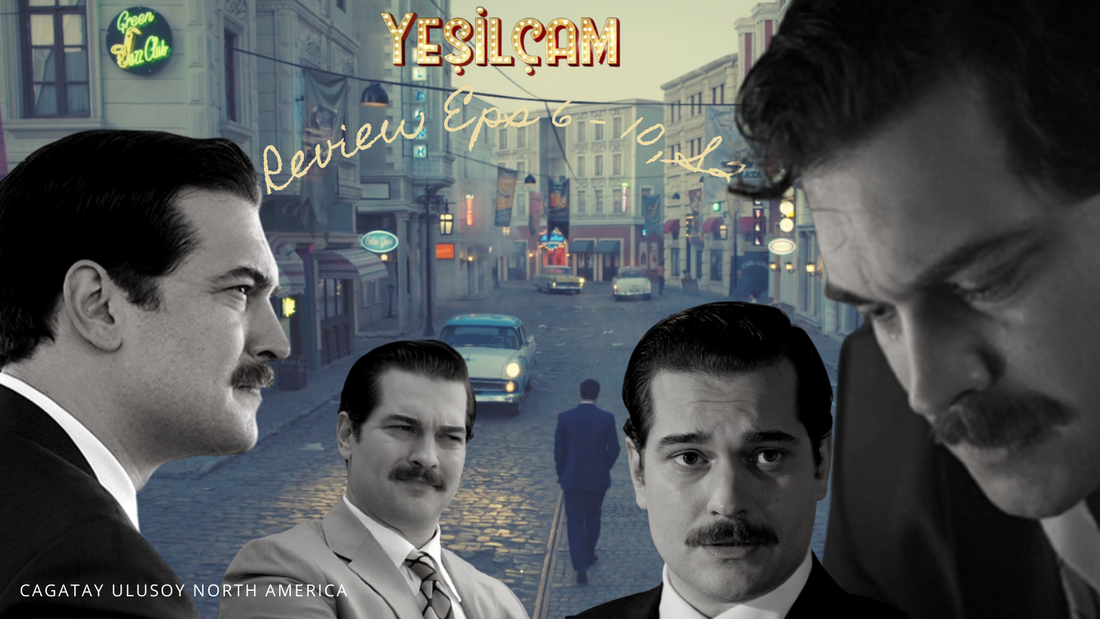

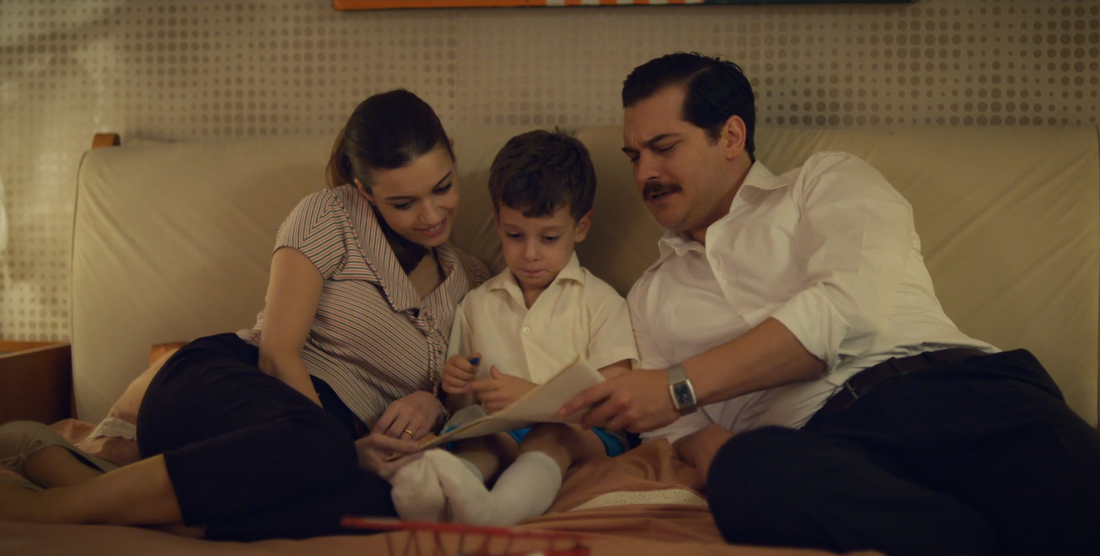

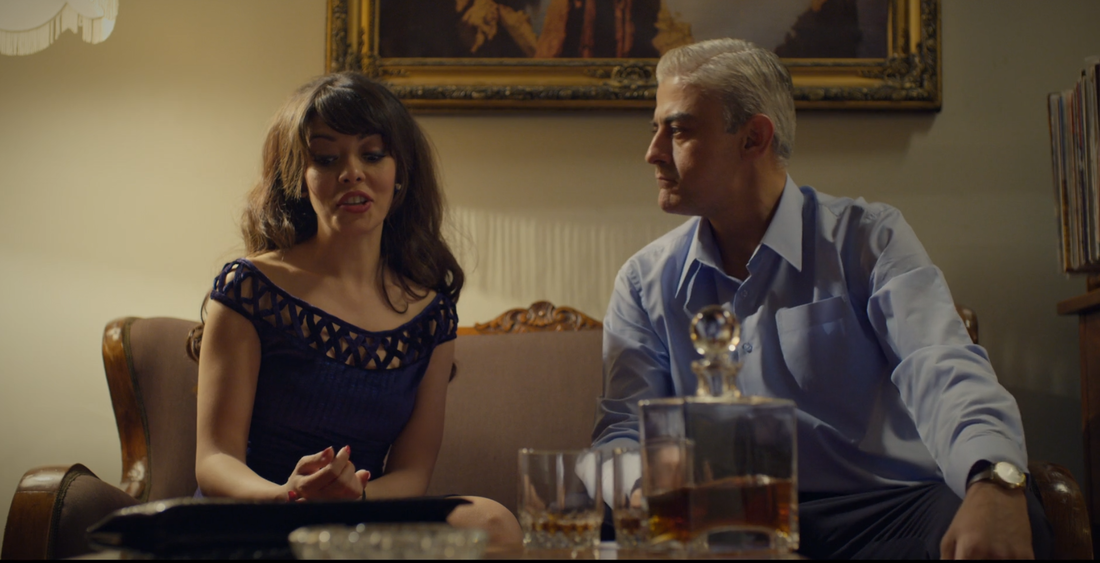

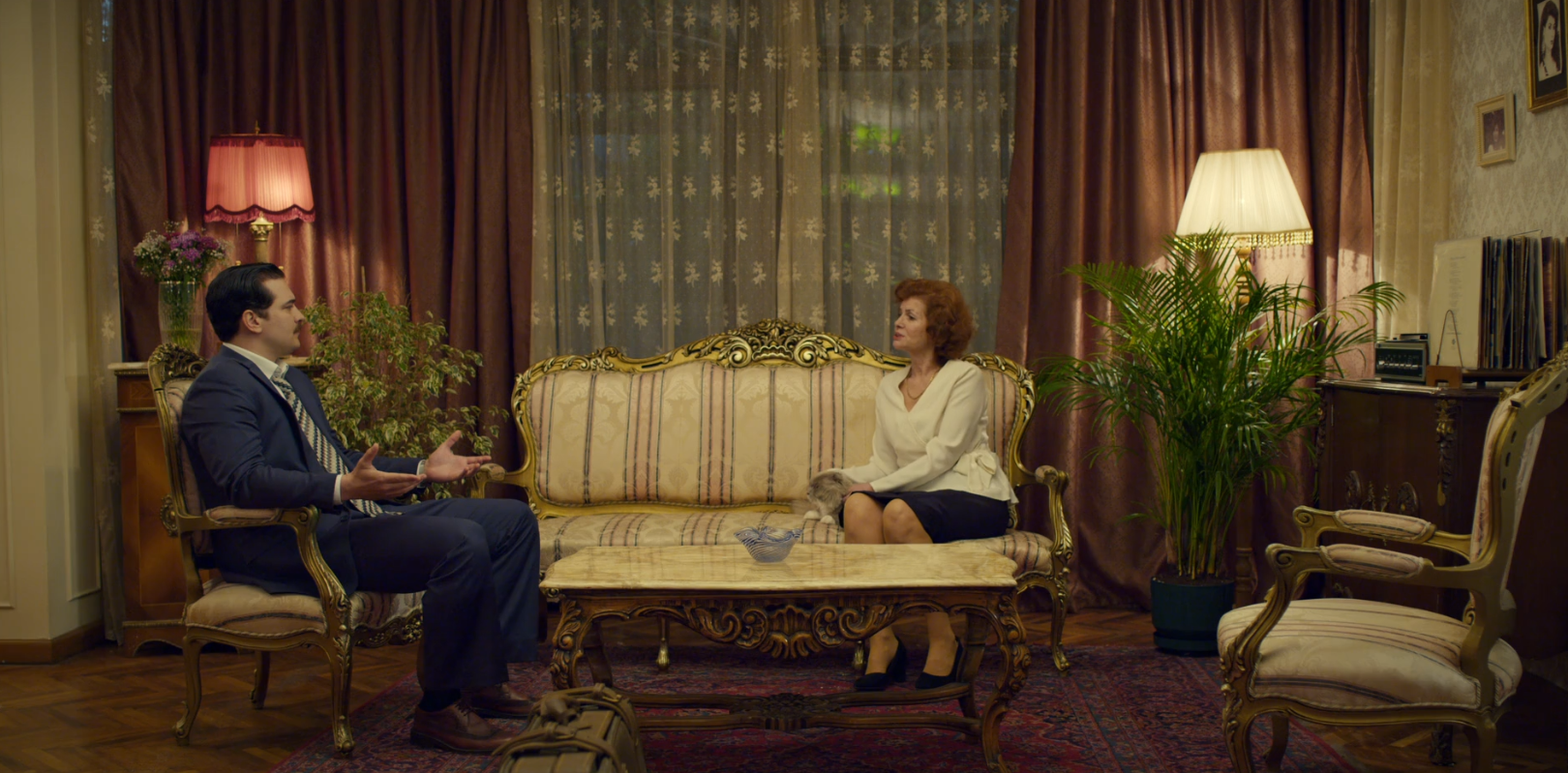

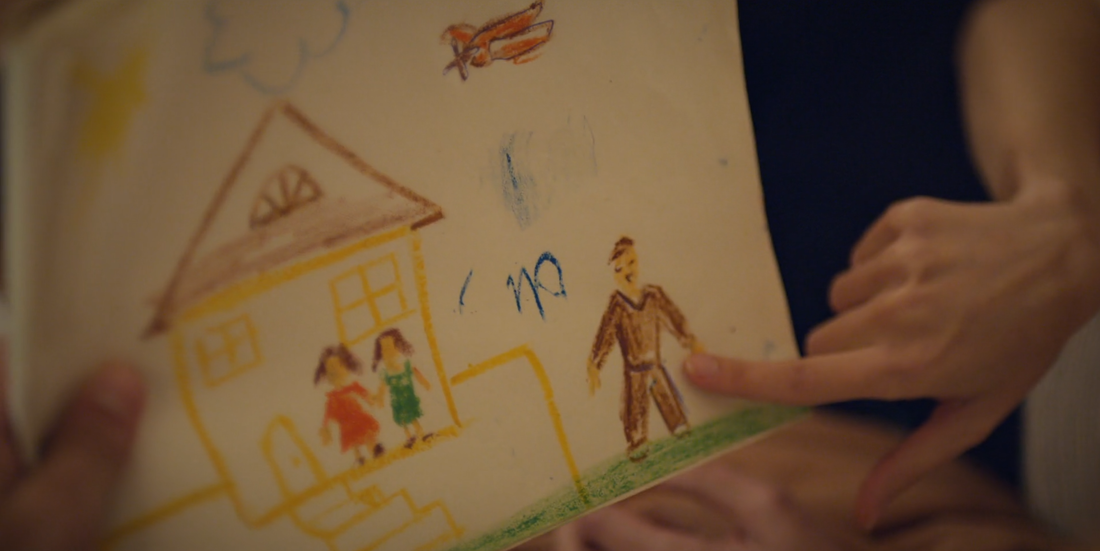
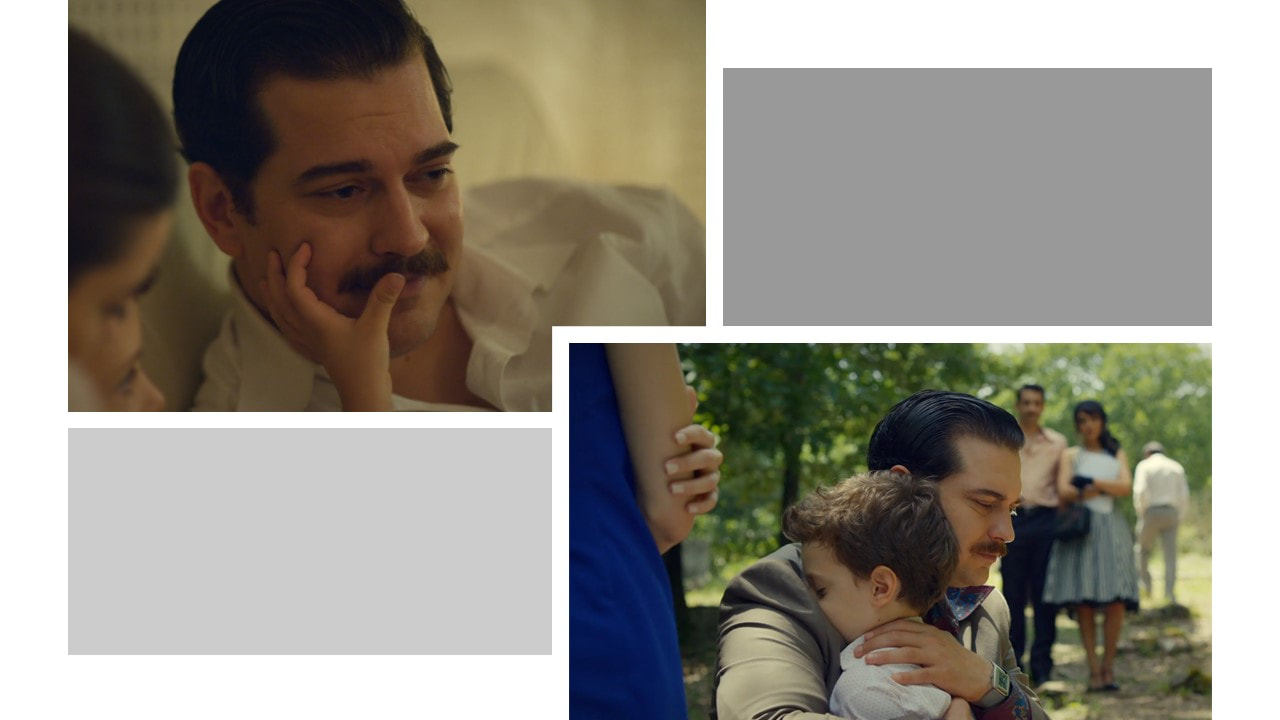


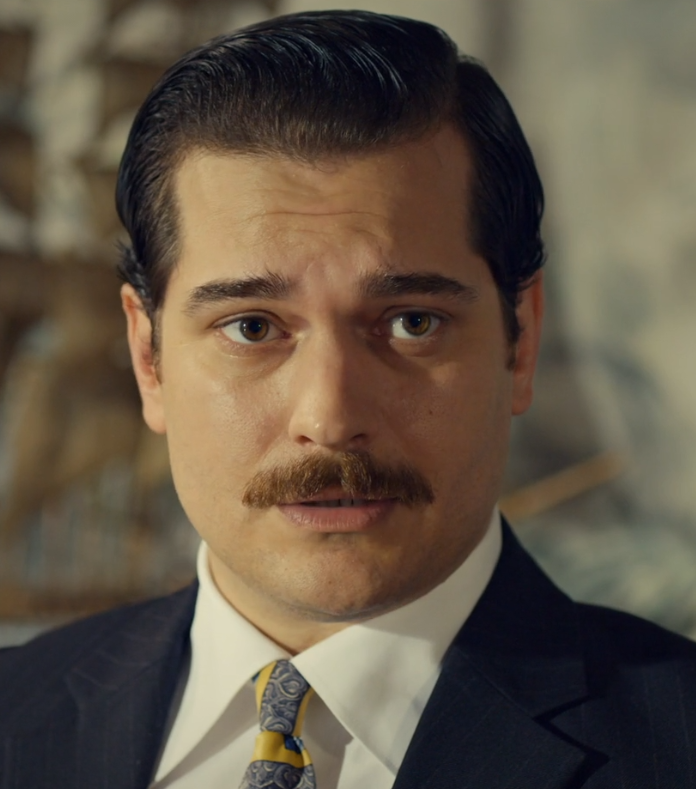

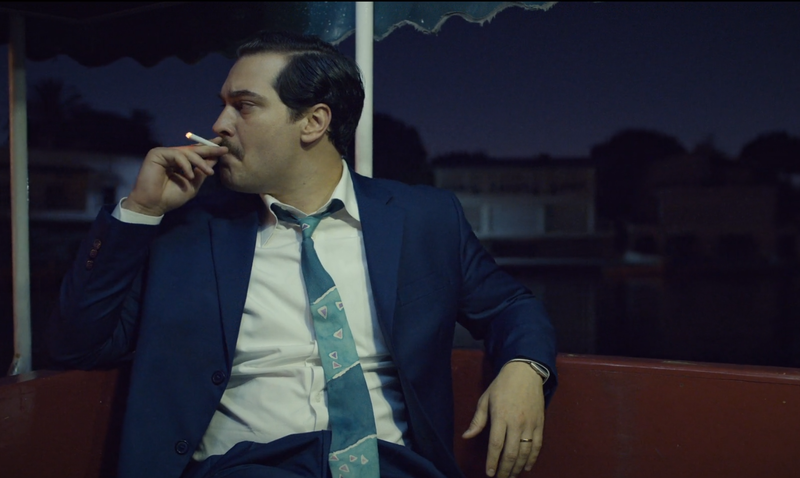
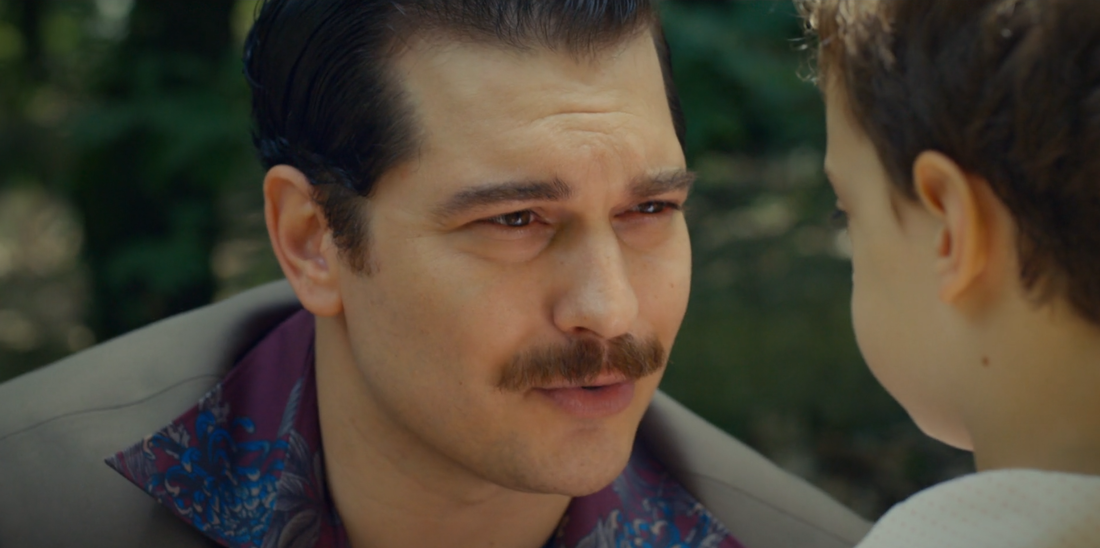

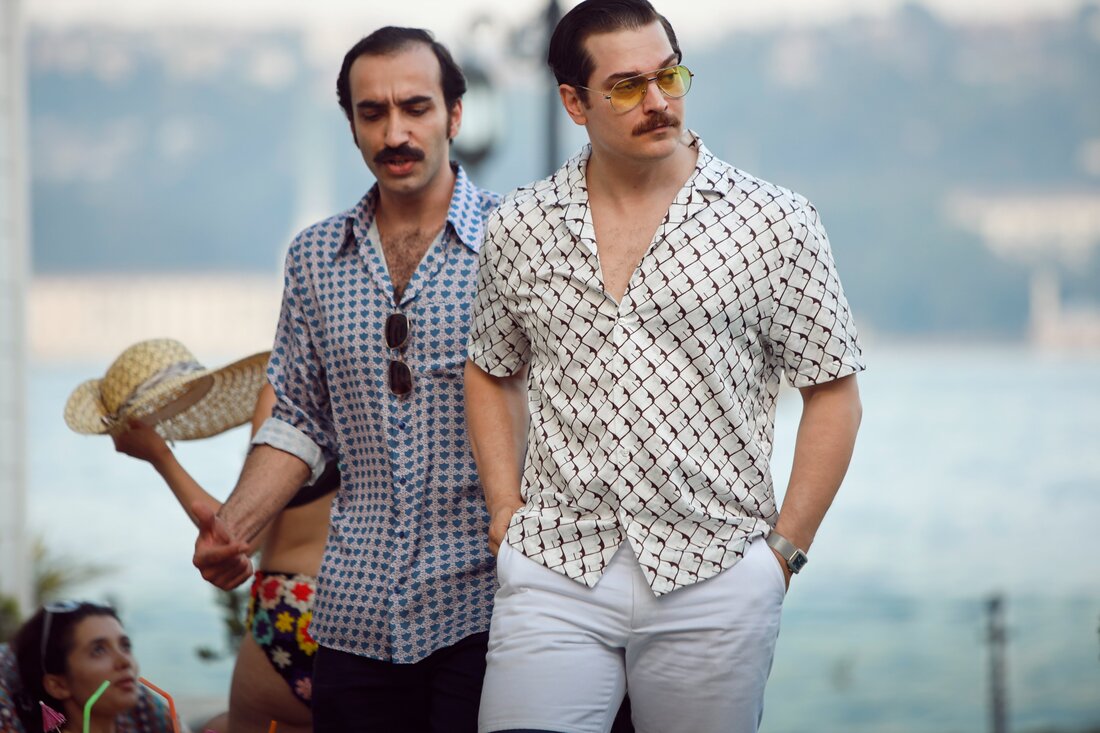


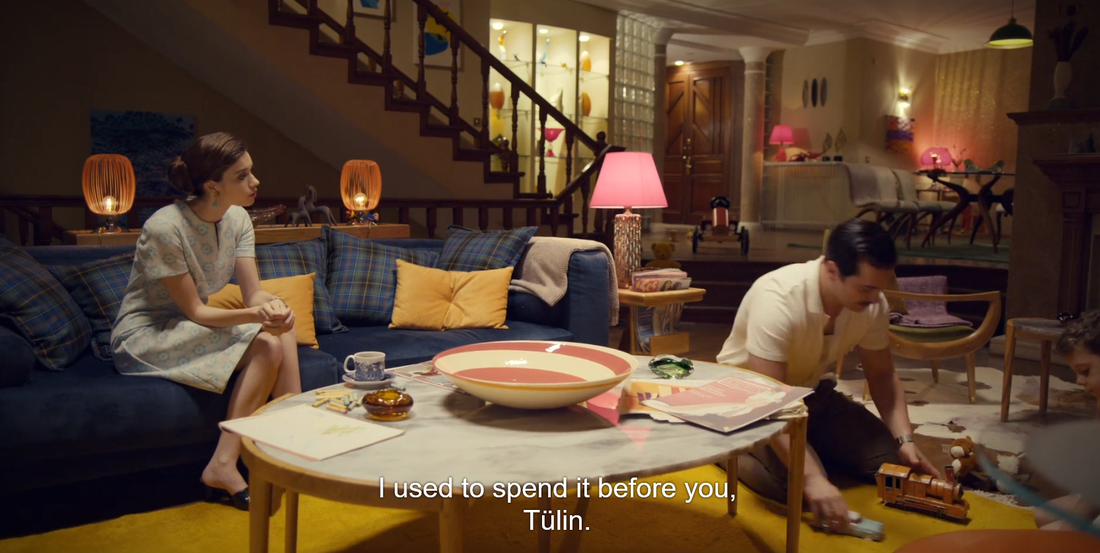
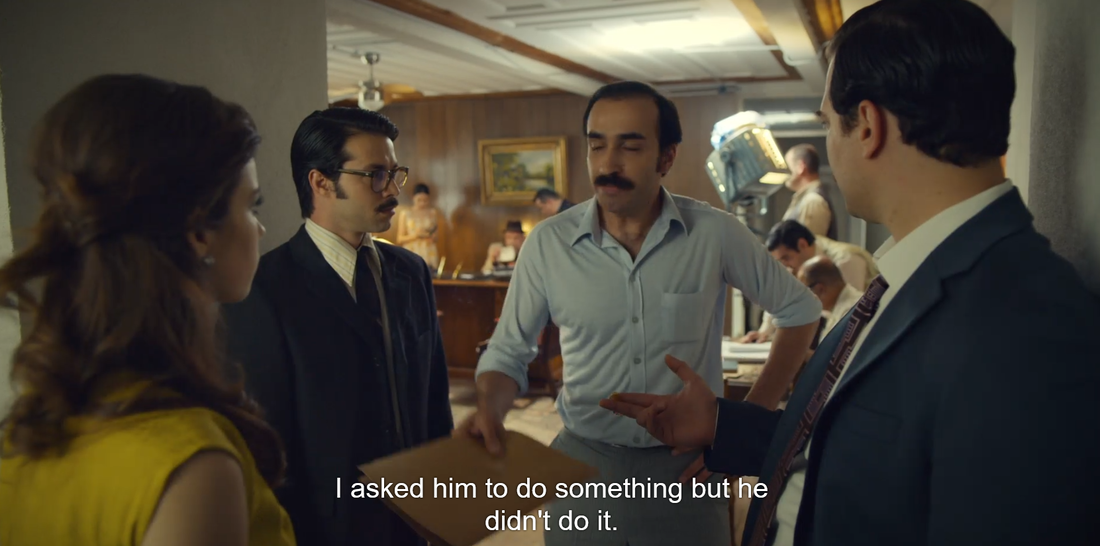



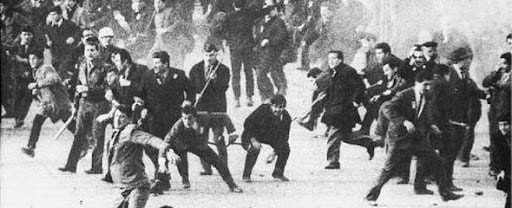
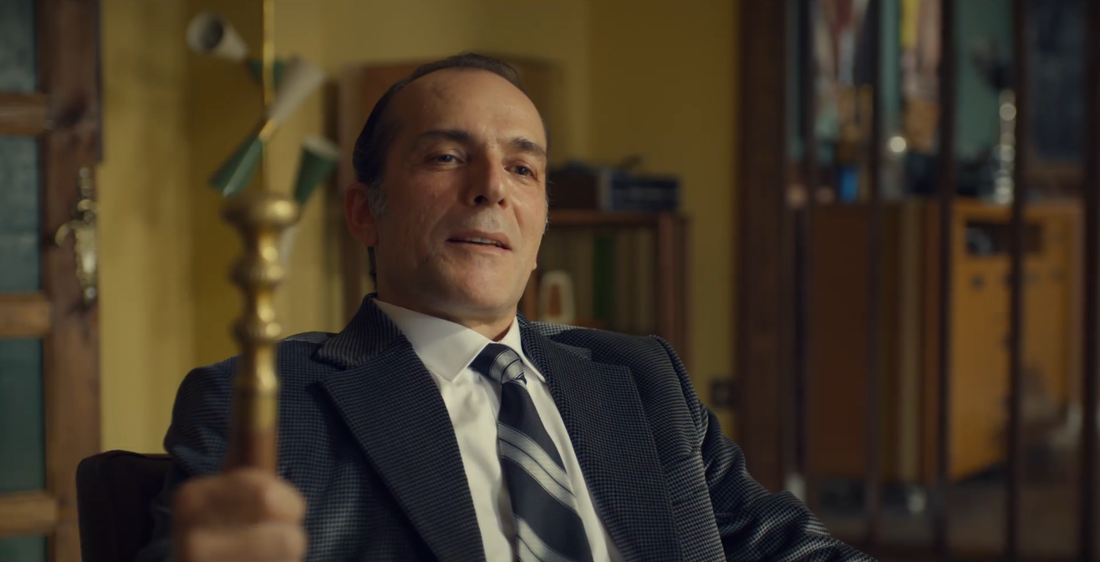
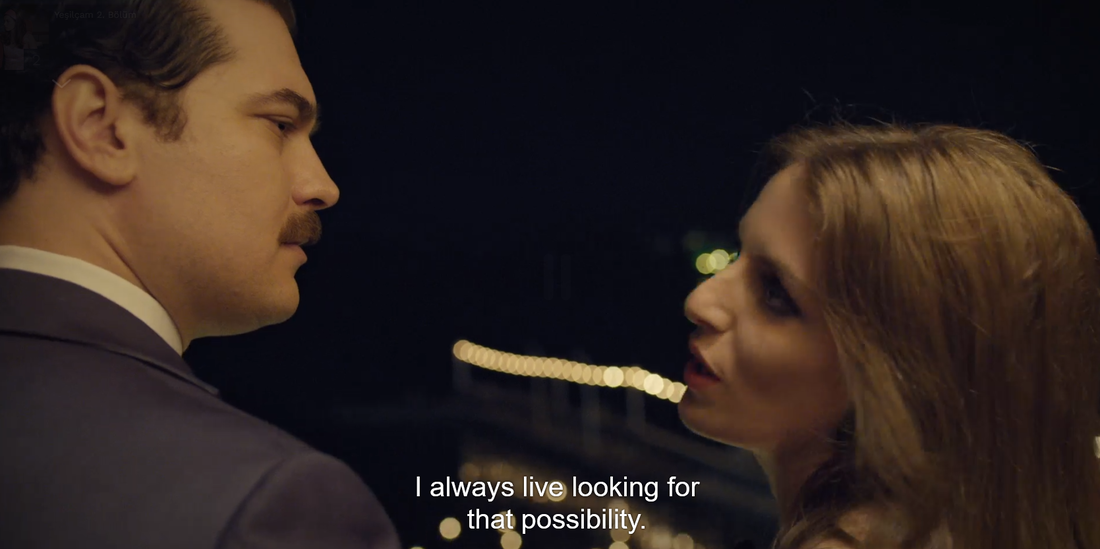
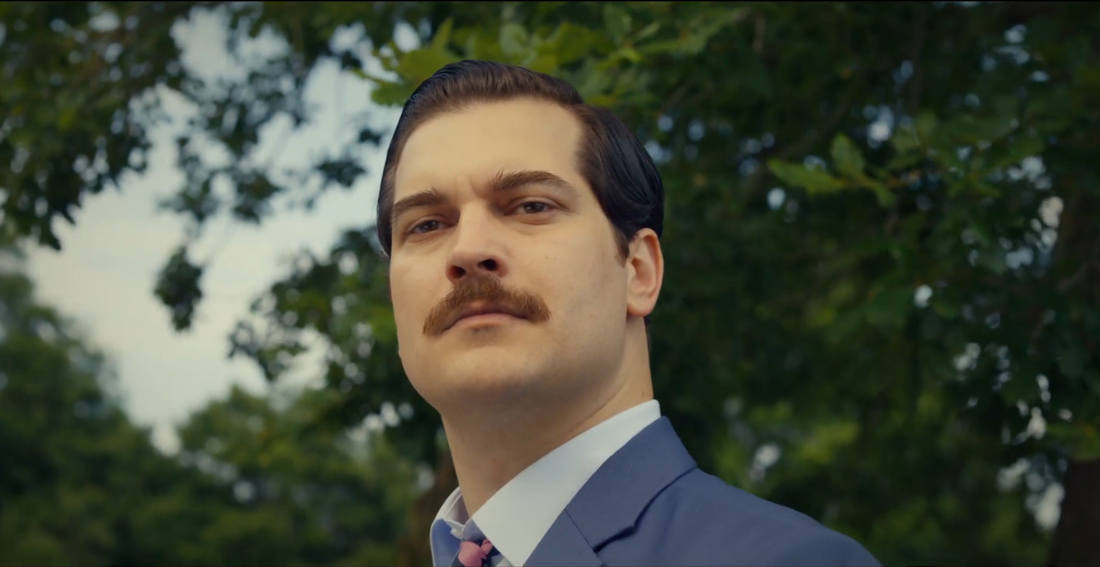
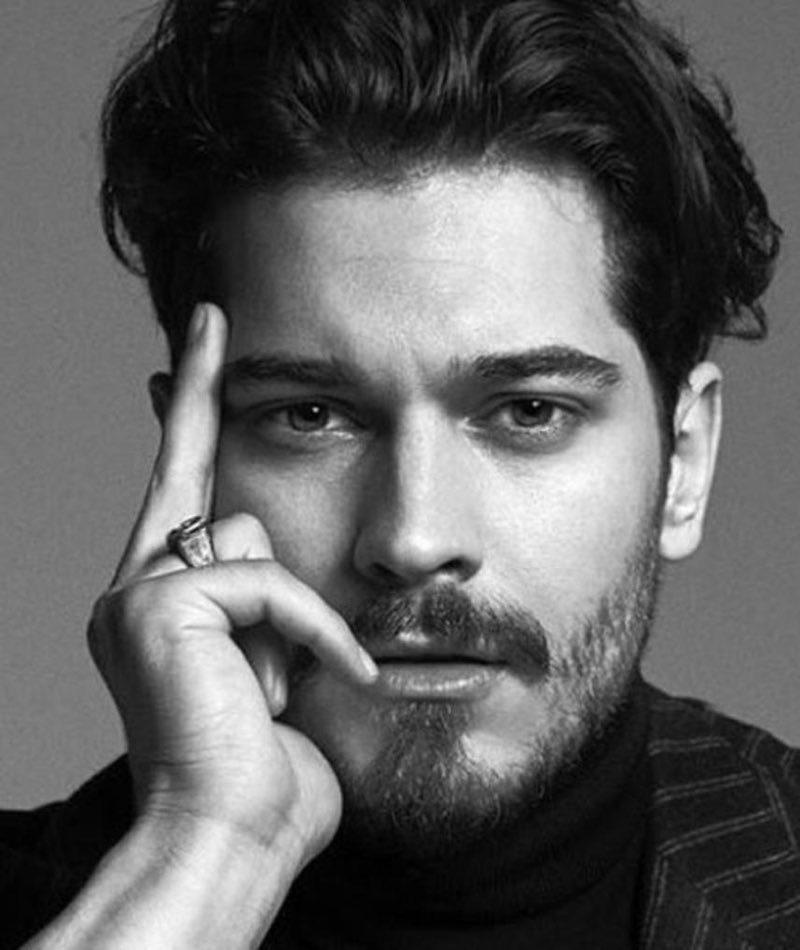
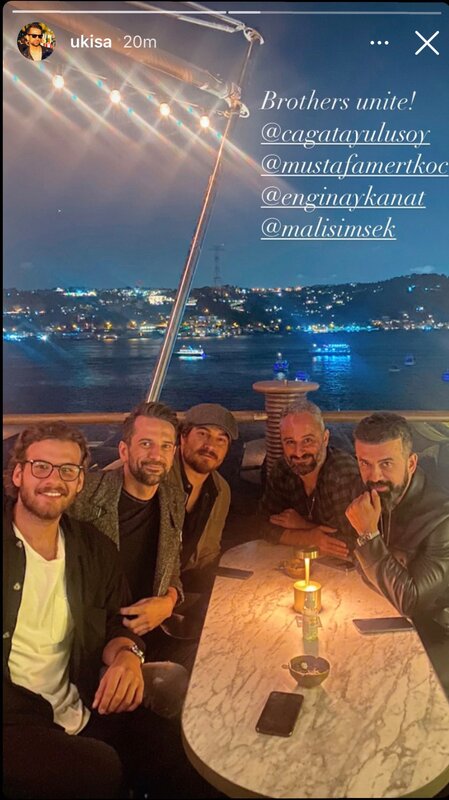
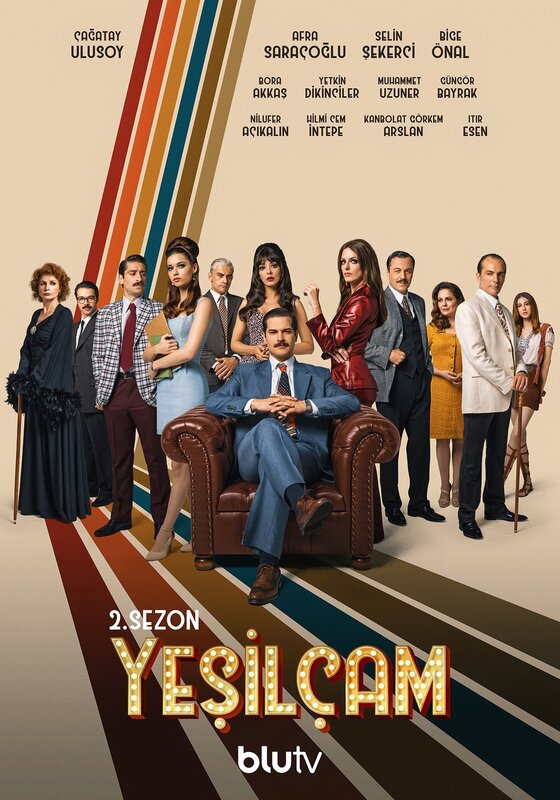
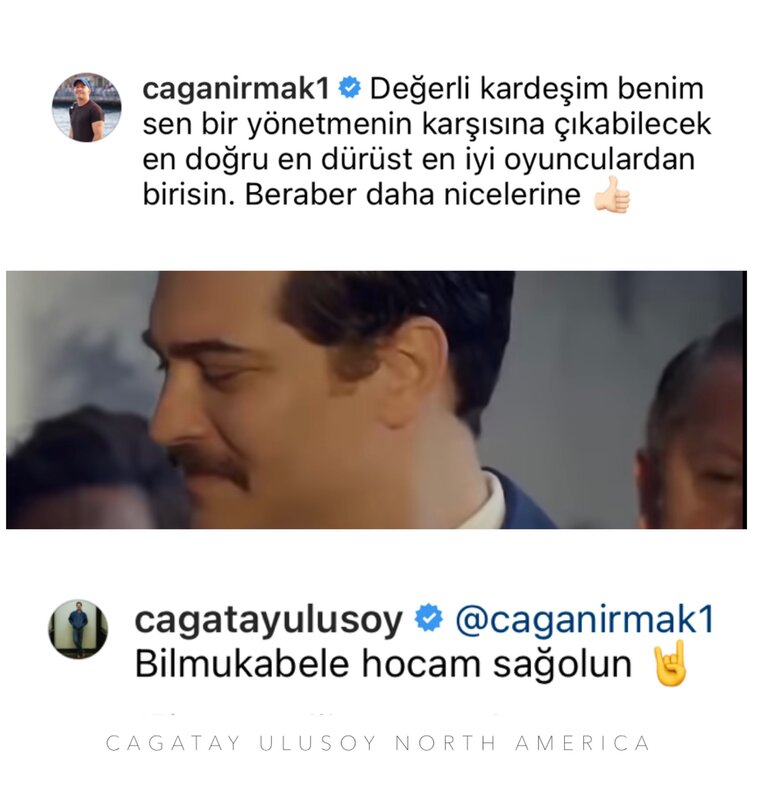
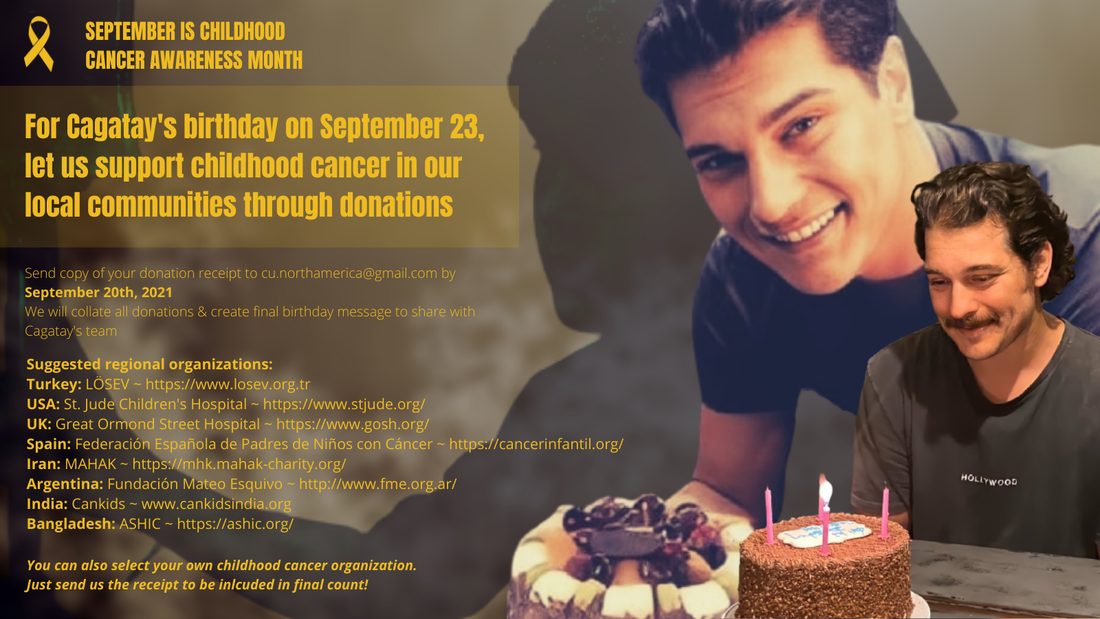
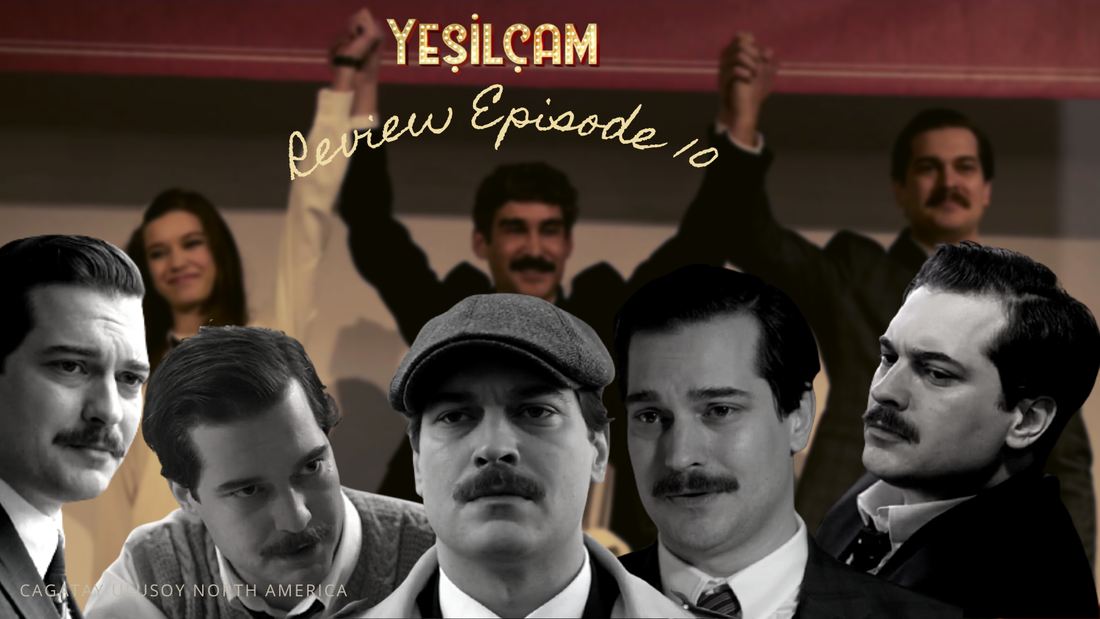
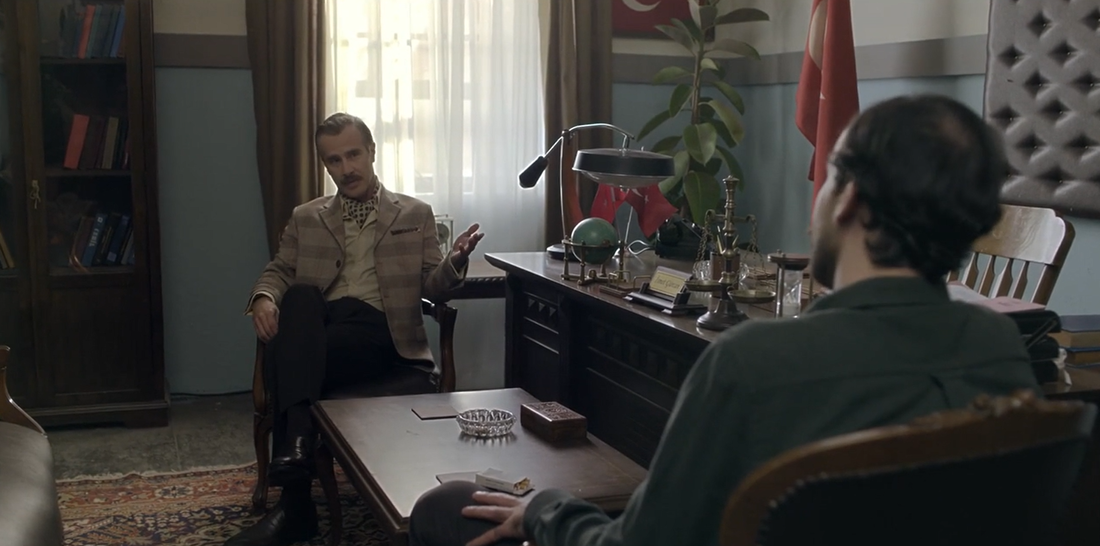

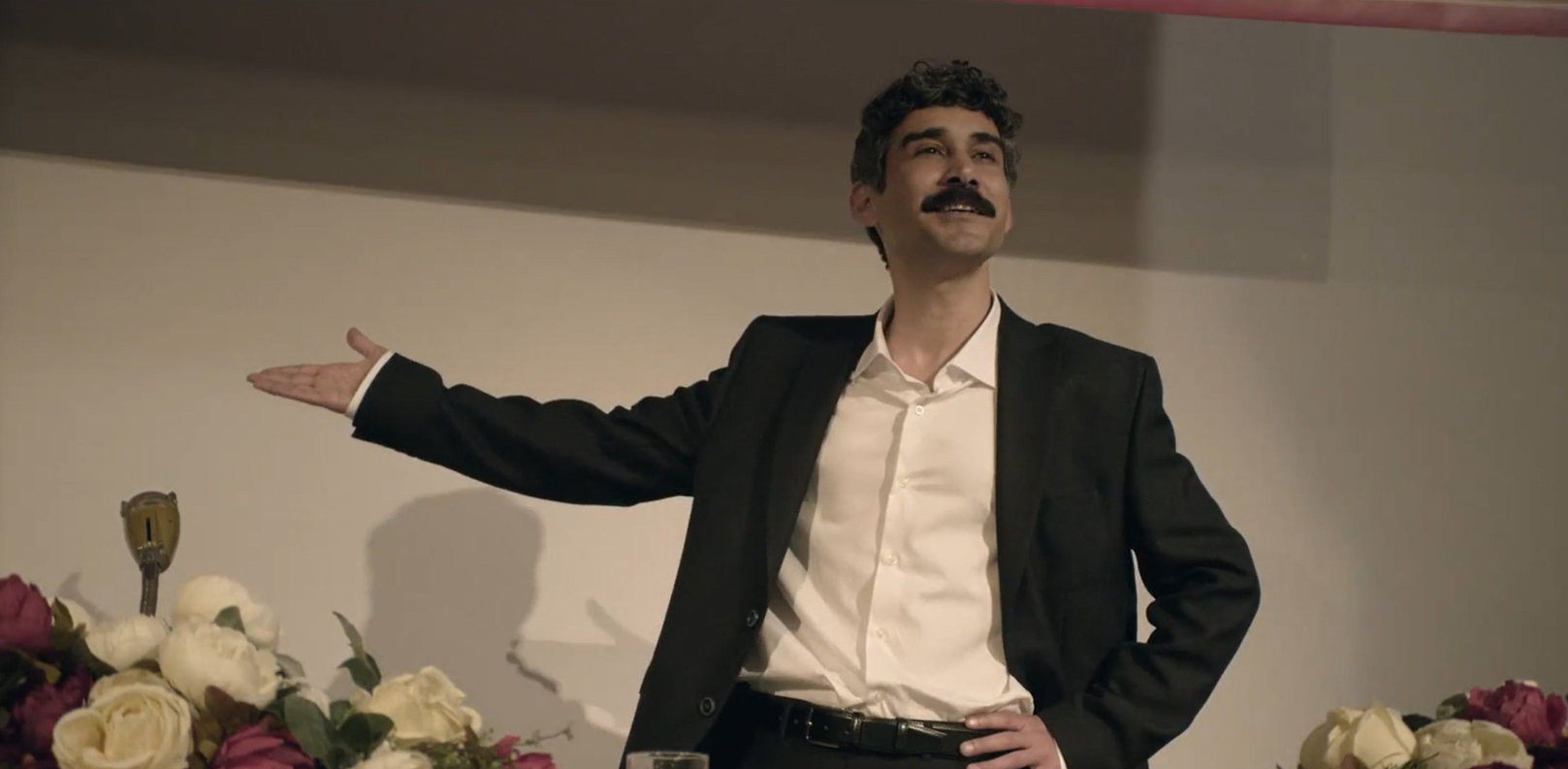
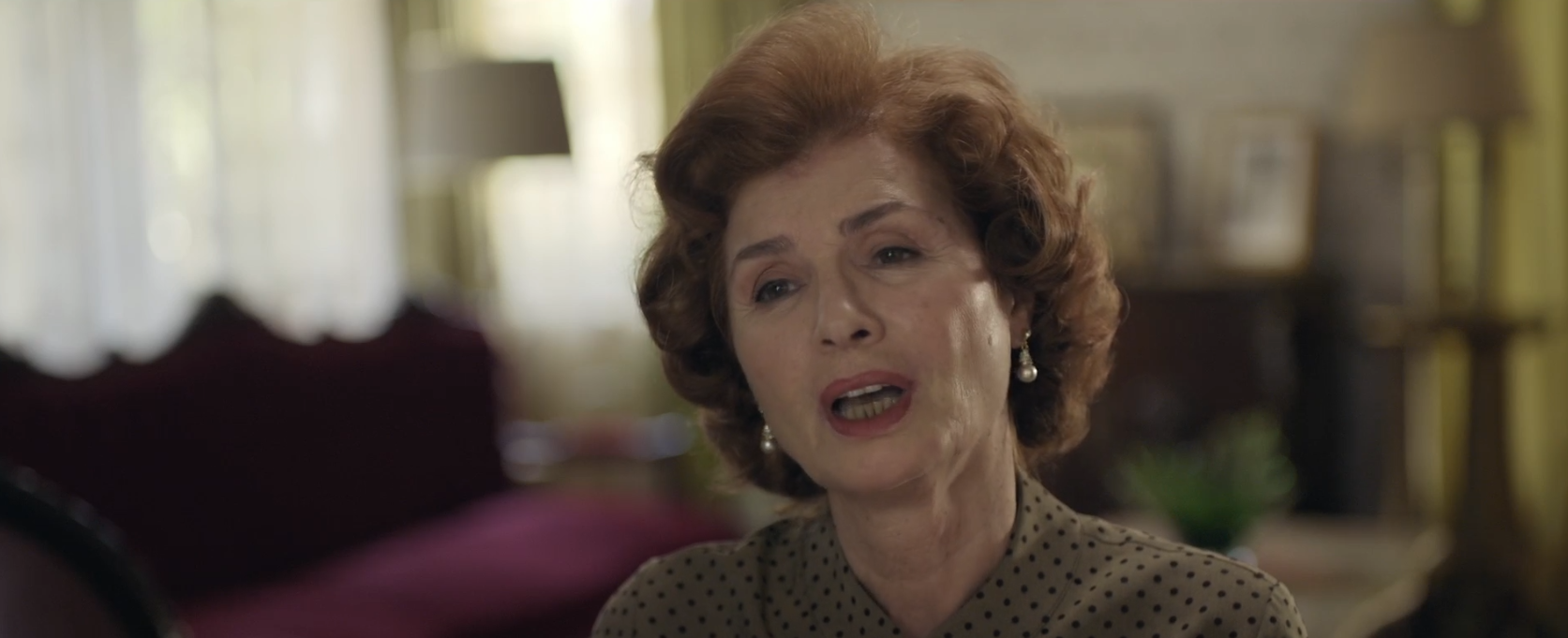
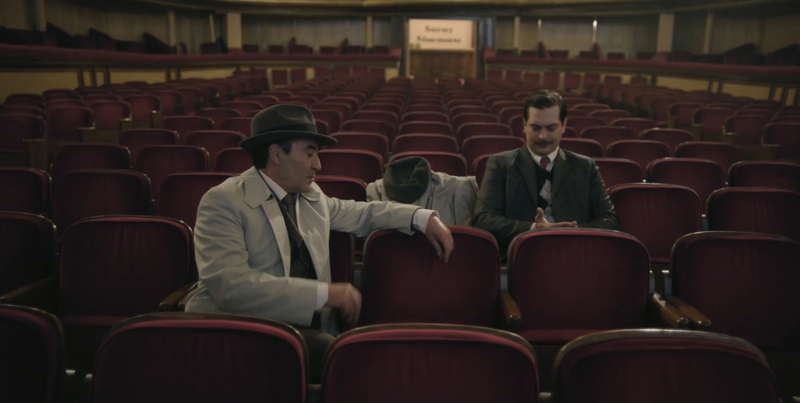
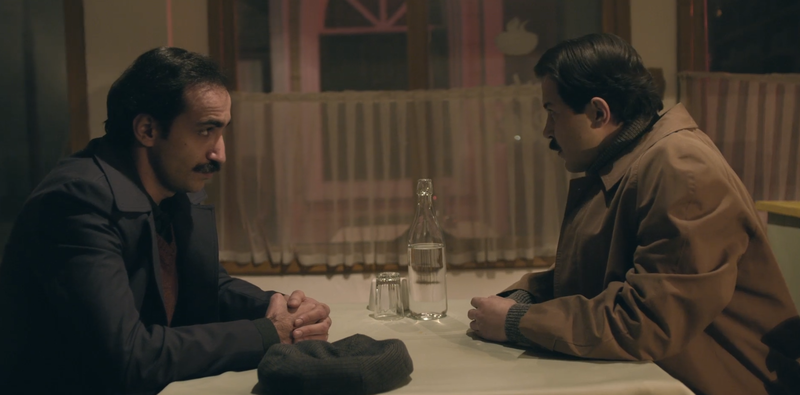




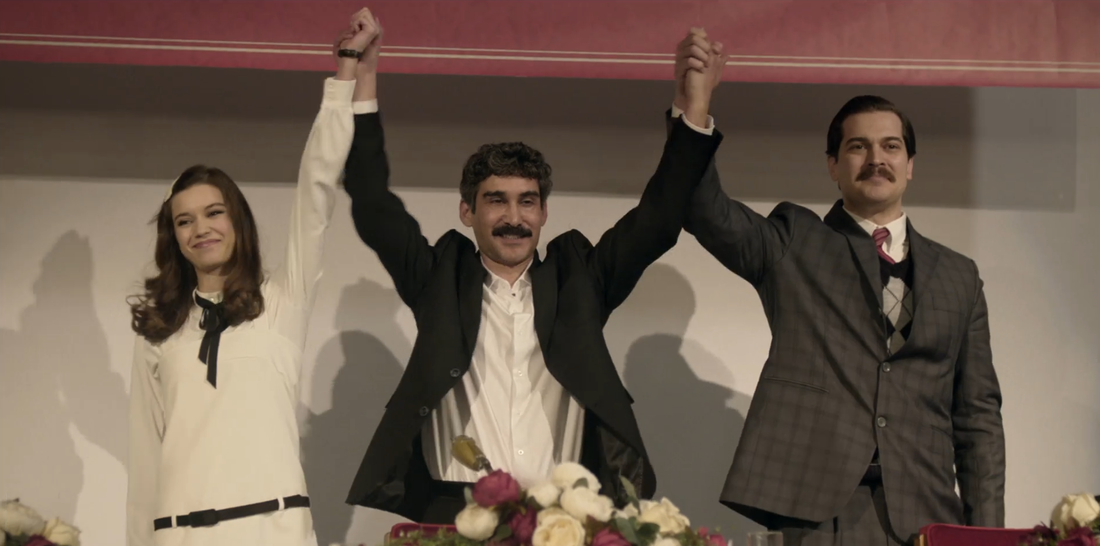
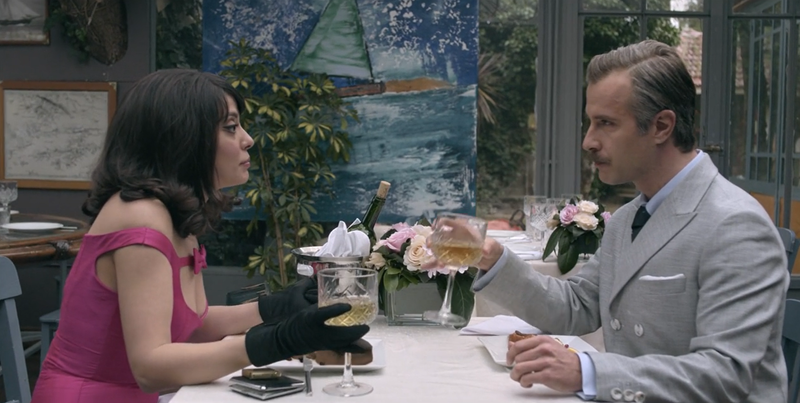
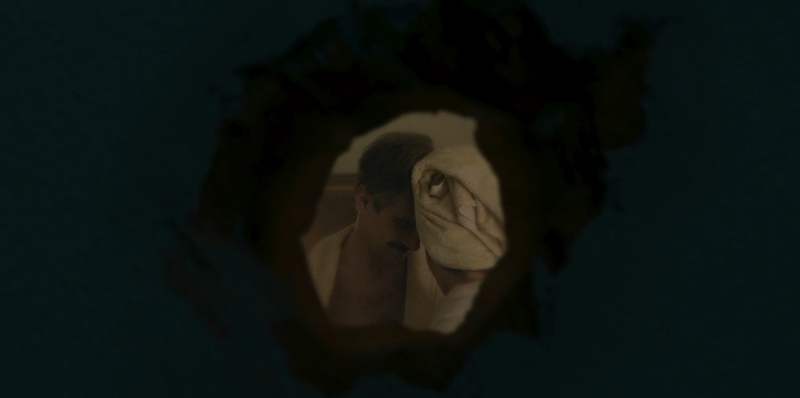
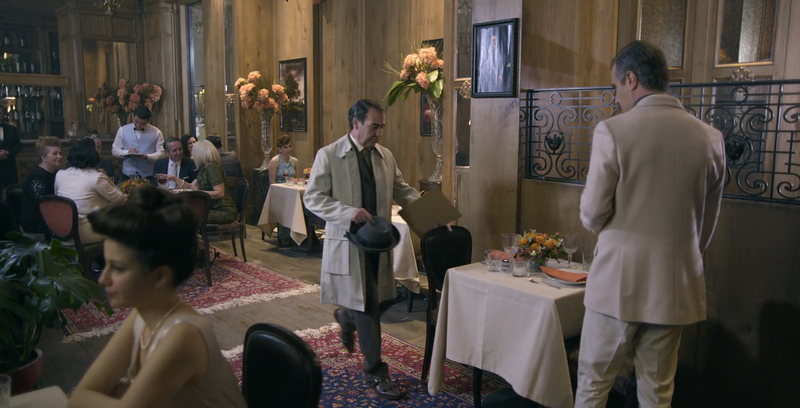
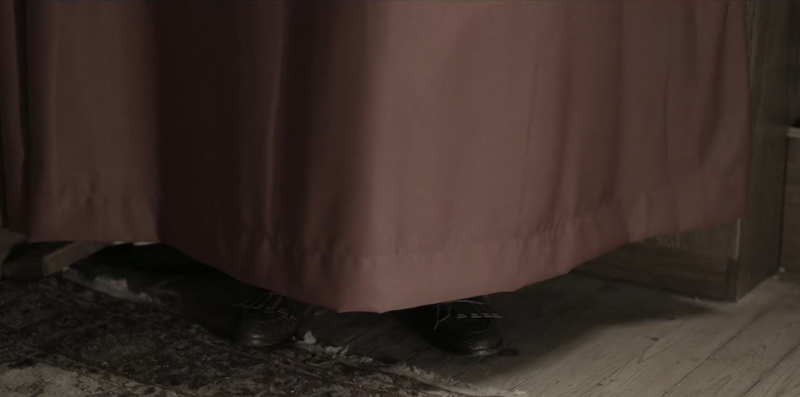
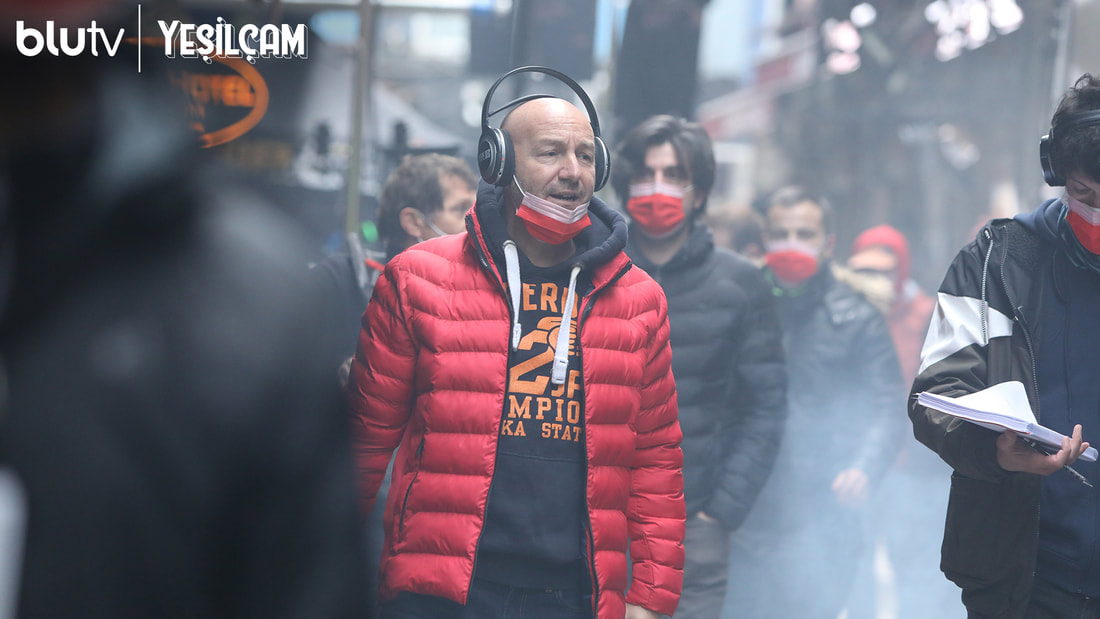
 RSS Feed
RSS Feed
